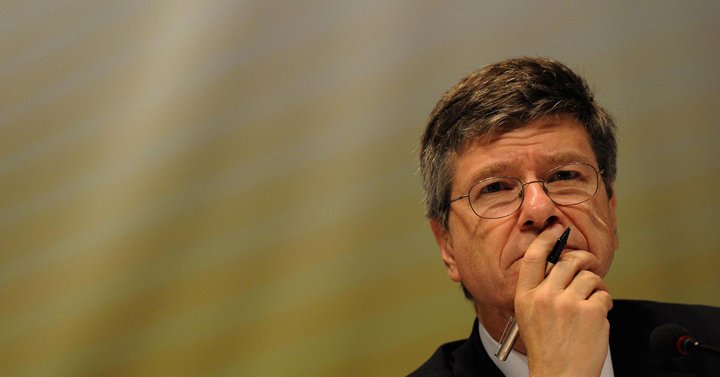The Idealist
When I started college I was a business major. That lasted no more than a single semester, and my Economics 101 class was to blame. It was dry and boring and I absolutely hated it.
Five years later, I was on a plane bound for Cambodia, devouring a 400-page book, The End of Poverty: Economic Possibilities for Our Time. Its author, a development economist who came highly recommended by a rock star from Dublin, was named Jeffrey Sachs. I found the book’s message intoxicating. In retrospect, I was young and idealistic. And Sachs was, for his part, the consummate idealist. He argued that if the West simply allocated more money to aid—pennies, really, in the scheme of things—the end of extreme poverty would be achieved. Everyone needs to read this book, I thought. Ending poverty is easy!
Over the course of the three months that ensued, while traveling around Cambodia as a photojournalist, cracks in Sachs’ rosy picture began to form. And by the time I found myself studying economic development in grad school two years later (no, I couldn’t quite shake economics after all), I’d lost faith in what had come to be known as the “planner” approach to development. (Bill Easterly, who invented and/or popularized the “planners” and “searchers” framework, is Sachs’ most tireless critic.)
In The Idealist: Jeffrey Sachs and the Quest to End Poverty, journalist and Vanity Fair contributing editor Nina Munk portrays her subject as a very smart man with unassailable persistence, who cares deeply about ending poverty—particularly through the Millennium Villages Project, which Sachs launched as a way of putting his development theories to the test.
But the man who emerges in these pages, despite his unquestionable intellect and dedication—or perhaps because of those very things—is also, unfortunately, staggeringly egotistical. When other economists talk about development in terms of complexity, Sachs repeats his mantra that the solution is easy, if only everyone would listen to him. When his assertions are questioned, Sachs doesn’t just decry his critics as mistaken, but repeatedly attributes to them sinister motives—you know, like how they don’t really care about the poor. On multiple occasions Munk has him going on tirades and calling others names in public—stories that would, incidentally, be easy to disprove if untrue.
But an economist who is simply a bit rough around the edges at social gatherings wouldn’t make headlines. What matters is that the Millennium Villages Project has by most objective measures not been successful in accomplishing its goal—to provide a viable model for ending extreme poverty worldwide—and that Sachs has never quite admitted as much.
Munk notes that at certain points along the way, there was progress to be seen: medical clinics with supplies and additional staff, new school buildings and improved teacher salaries, those kinds of things. But the project had only secured funding for a five year period, and apart from Sachs’s apparent hope that the world would be convinced of the genius of his model and respond with unprecedented generosity, there was no clear plan for sustaining even these minor improvements in pilot villages for any extended period of time. The goal had always been sustainable elevated income, but there was no assurance any such thing was becoming more viable. Munk writes:
What if Sachs’s model was unrealistic? What if, after all, economic development did not advance along a straight upward line but instead, like the stock market, flatlined? By 2008, even Sachs could see that a five-year timeline was overly ambitious. People in the villages were healthier and better nourished than they had been. Nevertheless, the long-term goals of the Millennium Villages Project—to set people on the path of sustainable economic progress, to teach them self-sufficiency, to lift them out of extreme poverty—were as elusive as ever.
Rather than admitting he had been overly ambitious, however, Sachs simply extended the project’s duration from five to ten years—while raising the project’s budget (ever so slightly) from $120 to $193 million. It was, in Sachs’s words, a minor “course correction.”
The Idealist comes to a close with Sachs decidedly less optimistic than he had been at the start. In fact, he seems downright bummed out. Where he had previously spoken with certainty about solutions, his optimism was much more measured—but he still couldn’t bring himself to admit what others had been saying all along, that solving extreme poverty wasn’t quite as easy as he’d always claimed.
I’d hate for anyone to read this book and simply become discouraged, thinking that creating economic opportunity for the world’s poor is a lost cause. It’s not. Nonetheless, as an engaging biography of an ambitious economist whose promises ultimately came up short, The Idealist is, as Bill Gates describes it, “a valuable—and, at times, heartbreaking—cautionary tale.”
